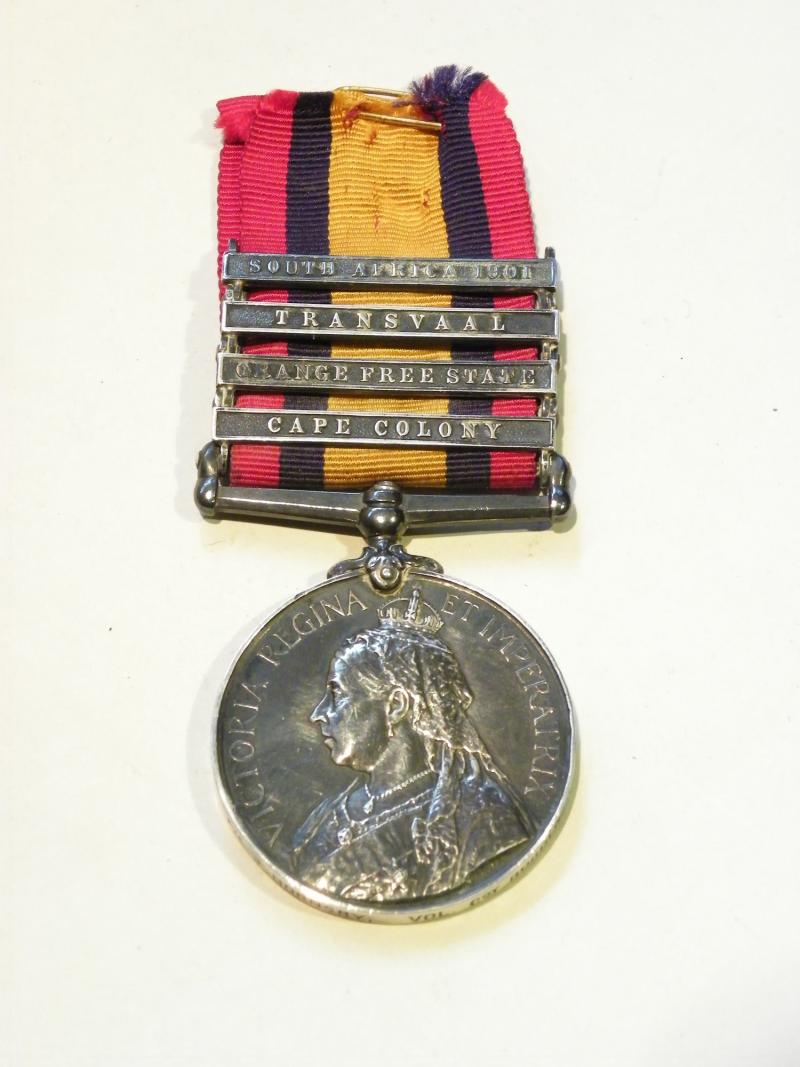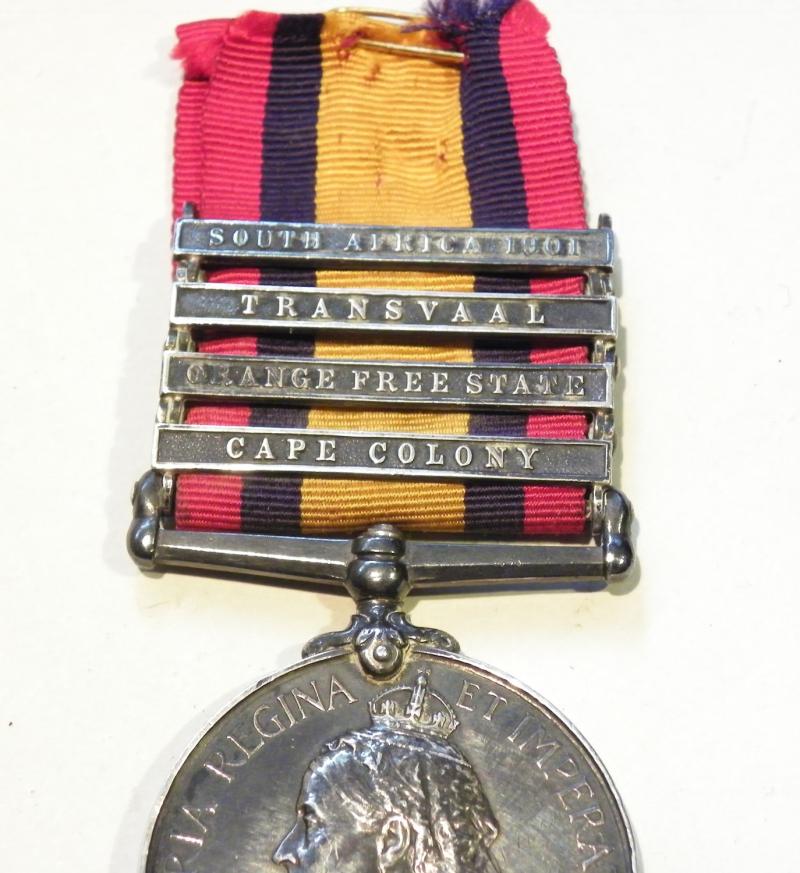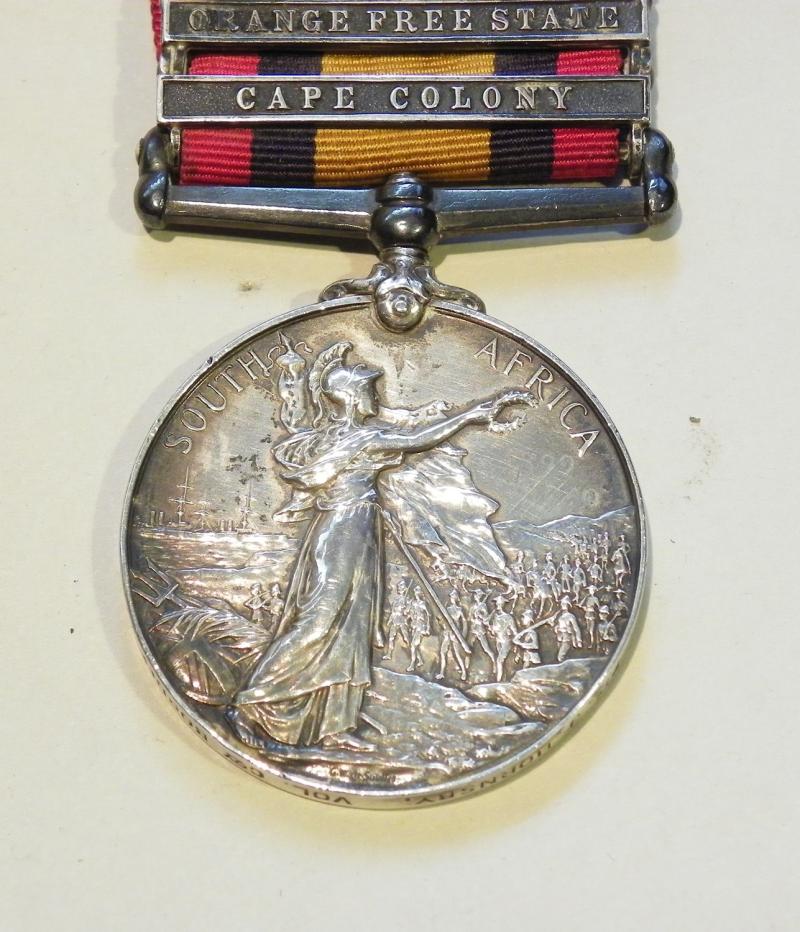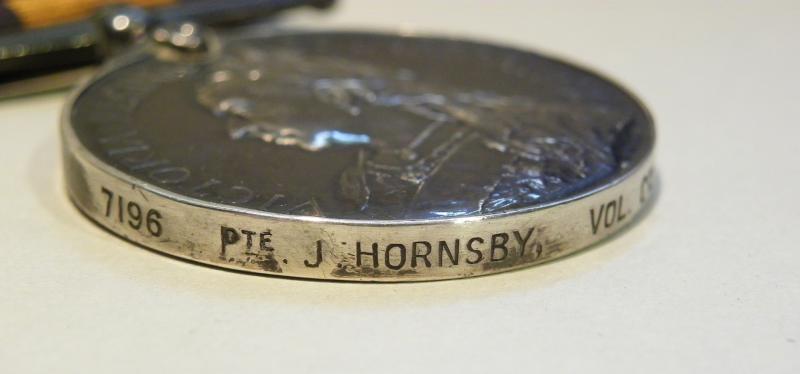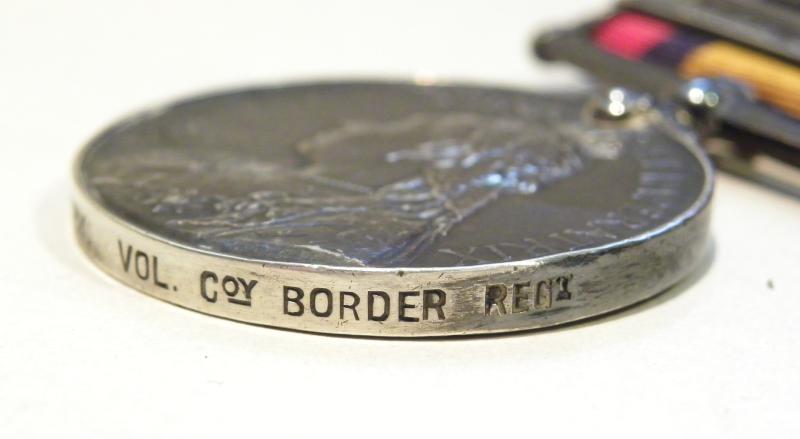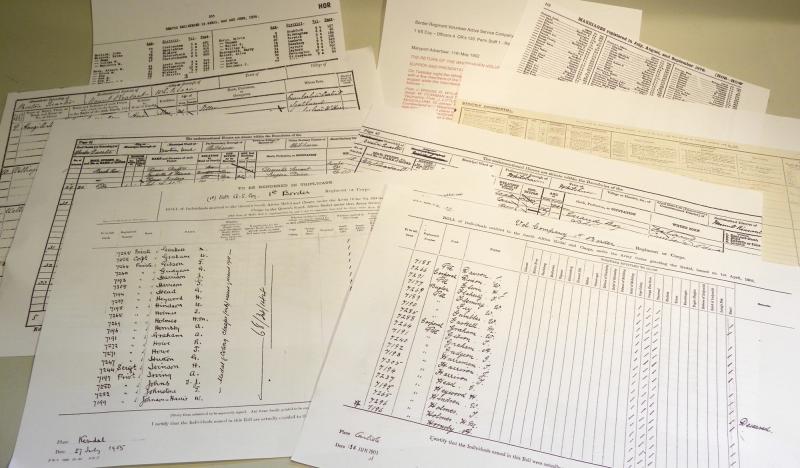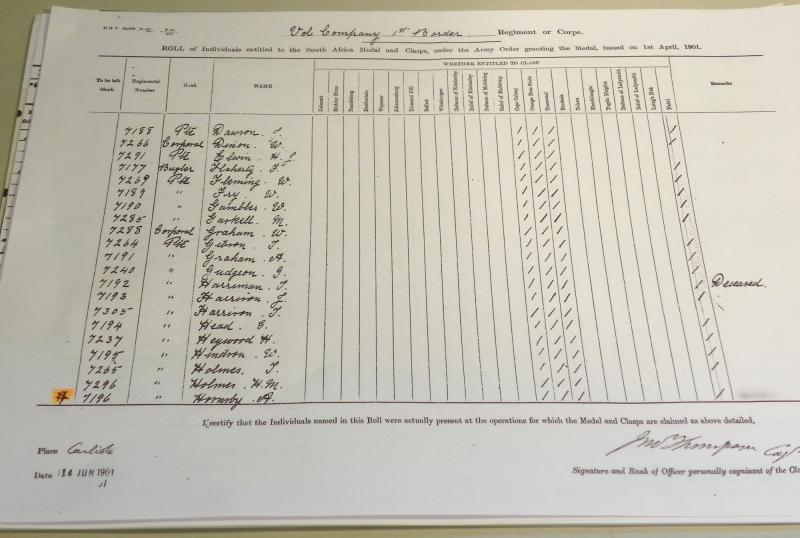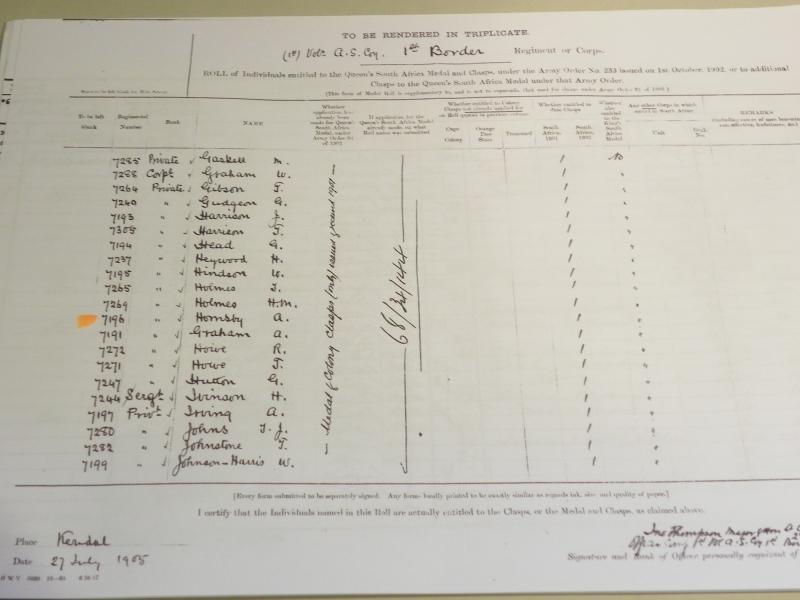Interesting QSA to Hornsby Volunteer Coy Border Regiment.
A very interesting and scarce Queens South Africa Medal with ghost date marks to 7196 Private J Hornsby Volunteer Coy Border Regiment with Cape Colony, Orange Free State, Transvaal and South Africa 1901 clasps. Research shows he is also entitled to the Natal clasp which is not present. Naming has professional correction to initial J.
This medal caused me many hours of research due to transcript errors and a contemporary error in the naming on the medal.
Medal roll transcript errors included his last name, which was recorded as Homsby, correct spelling of Hornsby on original paperwork, also on the original paperwork he is down as A. Hornsby, this I believe is down to his Cumberland accent on attestation, A sounding like J.
John Hornsby was born in Workington, Cumberland around March 1849. His father died before he was two years old, so he was raised by his mother Jane with his brother Richard in their little house in Whitehaven, Cumberland. As soon as he could work, he sort employment down the mines and became a Coal Miner. He married Elisabeth Murphy in 1876 and had three children.
He joined the Whitehaven Volunteers sometime during the 1880’s, may be for a few extra pennies a week, they were formed to protect the harbour with its valuable exports of coal and minerals.
When the 2nd Anglo Boer war broke out in 1899, for the first time Milita and Volunteer units were allowed to join their regular battalions in South Africa. John sailed for South Africa and arrived around February/March 1900 with the rest of the Volunteer Company 1st Border Regiment part of the 10th division. The Company comprises of 4 Officers and just 135 Other ranks.
About the middle of April 1900, the Xth Division, under Sir Archibald Hunter, was brought round from Natal to Cape Colony and to action in some fighting about the 22nd and 23rd, losing 7 wounded. After the division were put on trains to the Transvaal western border, the 1st Border Regiment and 1st Connaught Rangers went to Irene and were posted east of that place under Colonel Bryan Thomas Mahon.
On 9th July General French, with Sir Edward Hutton and other troops, including those of Mahon, engaged the enemy and pushed them back beyond Bronkhorst Spruit. On the 12th the Border Regiment, Connaught Rangers, and Royal Fusiliers marched back to Pretoria clear the country north of the area. They had some stiff fighting in hilly country, the Border Regiment was left in the Megaliesberg; the remainder returned to Pretoria in August, very short of supplies they heard De Wet had crossed to the north of the Vaal. An attempt was made to surround him. The Border Regiment and some mounted troops were posted at Commando Nek with Baden-Powell. De Wet crossed the Megaliesberg range at Oliphant's Nek and paid a visit to Baden-Powell, sending a message asking surrender, which was politely rejected. Next day De Wet was driven from the district pursued by Mahon.
In September 1900 the battalion was again in a column operating from Commando Nek under General Clements, and at the end of December 1900 the battalion had some skirmishes in the Megaliesberg; they also fortified and held Breedt's Nek. In January 1901, now under General Cunningham was engaged against Delarey at Middlefontein, the regiment had 6 killed and 15 wounded in fierce fighting. In April 1901 they were detailed to guard the Klerksdorp-Krugersdorp Railway where they were often troubled by small groups of Boer Commando’s. In January 1902, after a visit from Lord Kitchener, the battalion built a line of blockhouses from near Ventersdorp to Lichtenburg so expeditiously as to gain a complimentary wire from Lord Kitchener. The battalion garrisoned this line till the end of the war. They claim that no Boers crossed it, although some thirty attempts were made.
In Lord Roberts' final despatch 11 officers and 16 non-commissioned officers and men were mentioned. Three officers and 3 non-commissioned officers and men were mentioned by Lord Kitchener in despatches during the later phases of the war, and in the final despatch the names of 3 officers and 3 non-commissioned officers were added.
Private Gibson was discharged, weather he stayed with the volunteers and later went into the Territorials is unknown, but due to his age, he probably called it a day after his return to south Africa. The Border regiment was highly commended for their service during the Boer war and John and other serving men of the Boer war from Whitehaven were honoured with a Supper and presentation of a Gold medal by the Whitehaven Mayor J. Davis. Each gold medal was engraved with the soldiers details. The occasion was reported by the Maryport Advertiser on 11th May 1902. In 1925 we see John living with his wife Jane and working for Penrith Council as a Roadman in a Quarry, he is now 71 years old. John Died in Penrith in 1934 at the age of 84.
With his QSA comes various copied research, medal rolls, census records, transcript from Mayport Advertiser and birth and death index. The medal is in very good original condition, unpolished and on its original silk ribbon.
A very nice and unusual QSA to a Volunteer only 140 medals were awarded to this contingent.
Code: 29799

